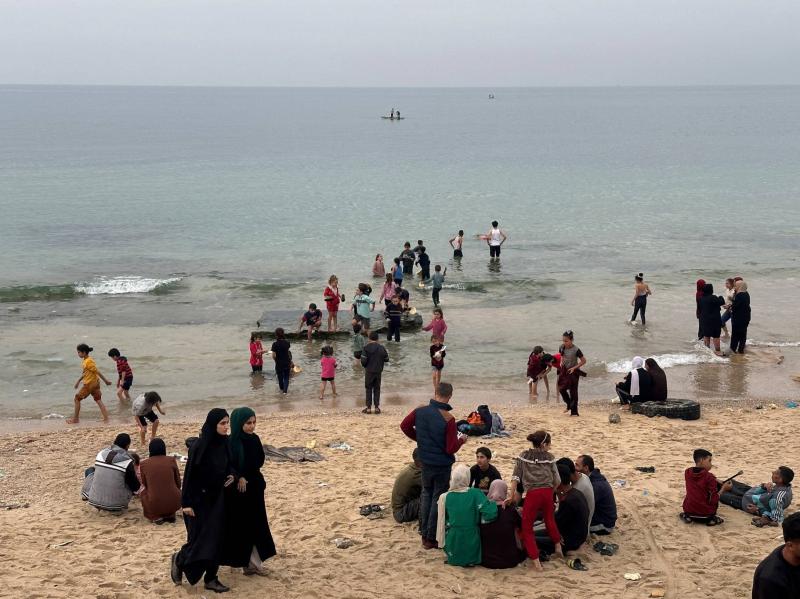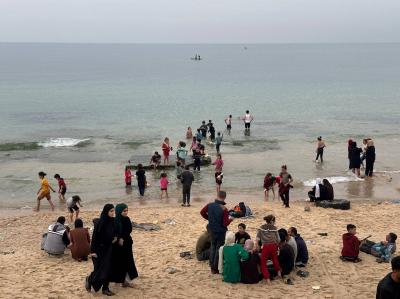From the cramped and grim shelters, Palestinian children ventured out to the vast and clear sea, playing on the shores of Gaza and seizing precious moments of respite during the brief ceasefire between Israel and the Islamic Resistance Movement (Hamas). However, amidst the fleeting joy, parents wept in anguish over the hardships of war and displacement. In the shallow waters, children jumped with the broken waves on the beach, while adults watched barefoot on the sandy shore.
Asma Al-Sultan, a displaced woman from northern Gaza, sat on the sand with her arms wrapped around her mother, tears streaming silently down her face. More than 30 members of the Al-Sultan family took refuge in a United Nations school in Deir al-Balah alongside hundreds of other displaced individuals. Asma stated that they came to the beach to take a break, albeit briefly, and to escape the overcrowded and bleak atmosphere in the school.
Yet she added that "even after coming to the beach, they still carried deep depression in their chests and were overwhelmed by tears." Hazem Al-Sultan, Asma's husband, expressed his fears about what the future holds for them after these four days. He said that he and his family had not dared to head north for fear that Israeli soldiers would fire upon them and their children.
The Israeli military assault had displaced hundreds of thousands from their homes in northern Gaza, the focal point of bombings and ground incursions. Residents from the north sought refuge in tents, schools, or the homes of friends and relatives in the southern part of the strip. They faced harsh conditions in tents and overcrowded schools amid a shortage of toilets and bathrooms, standing in long lines daily to receive small rations of food and water, exacerbating the psychological effects of the bombings and displacement.
At Deir al-Balah beach, a row of fishermen's shacks emerged in the background, situated downhill amid scattered garbage. Some displaced individuals lived in dilapidated shacks, with clothes hanging on lines outside to dry. Walid Al-Sultan, a relative of Asma, attempted to set up a fishing net near the shacks before going out in a small boat to fish, hoping the ceasefire would allow him to fish in peace. He said, "He brought nothing with him when the Israeli bombing forced him out of his home and thought he could live off fishing, but the Israeli guards prevented him and shot at him."
The war began after Hamas launched an attack on southern Israel on October 7, resulting in the deaths of 1,200 people, including infants and children, and the abduction of 240 hostages to Gaza. Israel responded with a comprehensive assault on Gaza that resulted in the deaths of 14,800 Palestinians, 40 percent of whom were under 18, according to health officials in the territories controlled by Hamas.
Some displaced individuals took the opportunity of the four-day truce that began on Friday to visit the remnants of their homes, but others were too scared to return to the north, much of which has turned into ruins.




